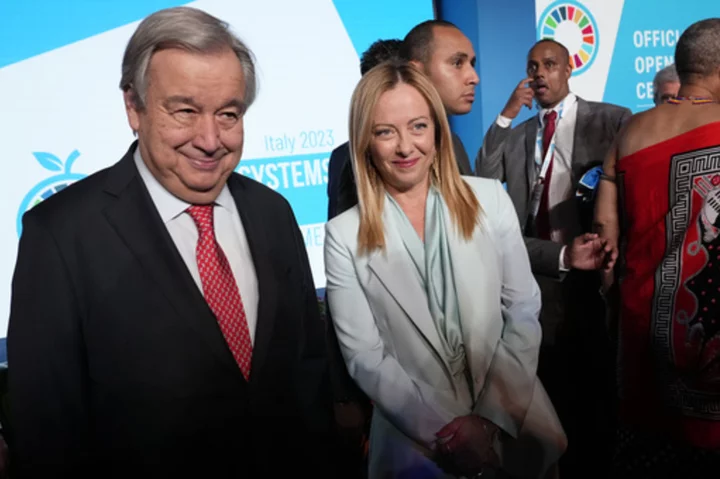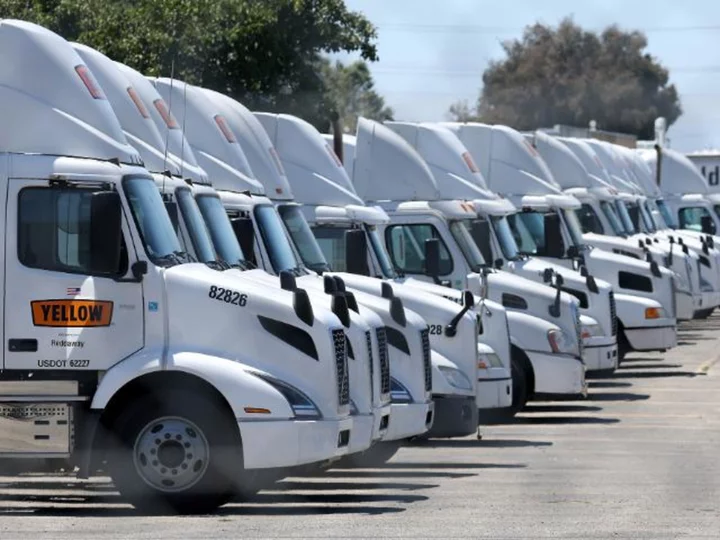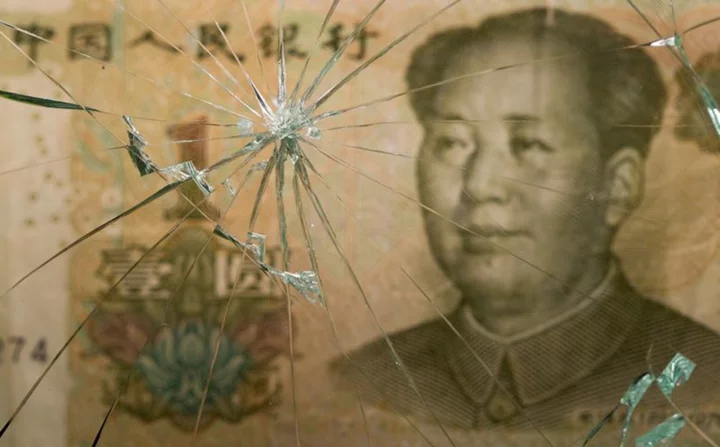ROME (AP) — The United Nations Secretary-General Antonio Guterres on Monday urged Russia to resume the internationally-brokered deal so grain can be shipped from Ukraine’s Black Sea ports, saying otherwise the world's most vulnerable among the hungry will suffer the worst consequences.
The U.N. chief made the call during a speech in Rome at the opening of a three-day food systems summit.
With the recent collapse of the Ukraine-Russia grain deal, “the most vulnerable will pay the highest price,'' Guterres said. He lamented that there are already negative effects on global wheat and corn prices, although he cited no figures.
Both Russia and Ukraine are “essential to global food security,'' the U.N. leader said. He noted that they have historically accounted for 30% of global wheat and barley exports, a fifth of all maize and more than half of all sunflower oil.
"For my part, I remain committed to facilitating unimpeded access to global markets for food products and fertilizer from both Ukraine and the Russian Federation and to deliver the food security every person deserves,'' the U.N. leader said.
“I call on the Russian Federation to return to the implementation of the Black Sea Initiative, in line with my latest proposal," Guterres said, urging the international community to stand united to find solutions for the issue during the summit's keynote speech.
Russia's refusal to renew the accord triggered the deal's collapse earlier this month. It said the Black Sea Initiative would be suspended until demands to get Russian exports of food and fertilizer to the world are met.
The accord had been brokered by the U.N. and Turkey as a way to keep grain flowing to developing countries, especially in Africa and the Middle East, despite the war unleashed by Moscow against Ukraine in February 2022.
When the grain deal was struck, the U.N. World Food Program regained a top supplier, allowing 725,000 metric tons of humanitarian food aid to leave Ukraine and reach countries on the brink of famine, including Ethiopia, Afghanistan and Yemen.
The deal's suspension as well as Russian attacks on the Black Sea ports of Ukraine have irked Russian ally China and as well as developing nations heavily dependent on the shipments to feed their people.
Besides the grain deal, the effects of climate change on food production will figure in discussions at the Rome summit.
The way food is grown and produced is contributing to climate change, weakening the agriculture-food system, according to Corinna Hawkes, director of the division of food systems and food safety at the Rome-based U.N. Food and Agriculture Organization, which is hosting the summit.
The gathering aims to take stock of progress and setbacks since the first food systems summit was held in 2021.
According to FAO, the summit has drawn participants from 161 countries, including 22 heads of state or government, and 150 non-governmental organizations.









